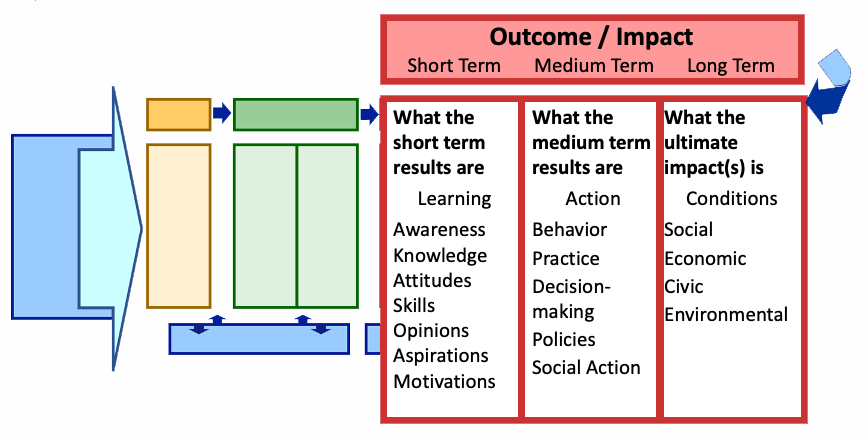Home » Enhancing Program Performance with Logic Models » Section 1: What is a Logic Model? » 1.13: Outcomes
1.13: Outcomes

Outcomes are the direct result or benefits for individuals, families, groups, communities, organizations, or systems. Examples include changes in knowledge, skill development, changes in behavior, capacities or decision making, and policy development. Outcomes can be short-term, medium-term, or longer-term achievements. Outcomes may be positive, negative, neutral, intended, or unintended. Because outcomes are so central to logic models, they are discussed in more detail in Section 2.
Impact in this model refers to the ultimate consequence or effects of the program — for example, increased economic security, reduced rates of teen smoking, or improved air quality. In our model, impact is synonymous with the long-term outcome of your goal. It is at the farthest right on the logic model graphic. Impact refers to the ultimate, longer-term changes in social, economic, civic, or environmental conditions. In common usage, impact and outcomes are often used interchangeably.




